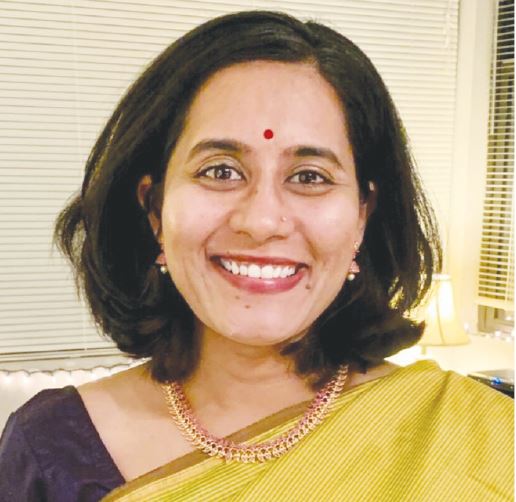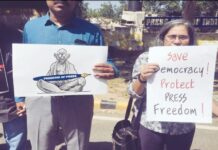Where did you do your primary studies and how was the struggle at that time?
My primary education was done at St. Kabir School and New Yashoda Public School, Hisar. I have always been interested in studies, perhaps that is why I did not face any kind of problems in my studies during school. My childhood with my parents and brother was very pleasant and spent with joy. Although our family was not very prosperous financially, I never felt a lack of anything. My parents always encouraged me and my brother in every way; Motivated us to set big goals and achieve them with tireless hard work and determination; Instilled a sense of self-confidence in us, which is very essential for the future of any child. Fortunately, I never faced any kind of pressure from my family; This freedom to think and act has made me my brother responsible and mature, and the full credit goes to my parents. The atmosphere of our house was always filled with literature and culture. Great personalities from different fields used to visit our house. I also got opportunities to participate in many literary-cultural programs. All these also had a deep impact on me.
When did it occur to you that I want to join the World Bank? What did you try for this? Worked anywhere else before World Bank? If so, where and which one?
I was always interested in World Bank, but I decided to join only a few years ago. After doing BA in Economics (Hons) from St Stephen’s College, Delhi, and MA (Economics) from Delhi School of Economics, I worked for some time in multinational companies like GE and American Express in India, but I have no interest in this field. During this time I got inclined towards research related to development economics. To develop this, I worked as a Senior Research Analyst at the International Food Policy Research Institute in Washington DC (USA) for one and a half years. During this, I got the opportunity to work on many projects related to agriculture and economic development in Africa. After this experience, I decided to become a researcher and economist. I obtained MA, MPhil, and Ph.D. degrees in Economics from Columbia University in New York (USA) and then worked as a University Professor in Boston for seven years. Academic research is very important in the field of economics. Research can have an impact in the true sense only when researchers try to solve development problems together with policy-makers, governments, non-governmental organizations, and common citizens. International organizations like the World Bank play an important role in fulfilling this objective. Through the World Bank, I can research economic and social issues around the world and contribute to policy-making. That’s why I decided to leave the university and join the World Bank.
How difficult was the journey from a small area to reaching the World Bank? How was it with the family on this long journey? How did you show such courage and think out of the box and think of going there in Haryana, where it is said that less education is given to girls?
I will not call this journey difficult, but today when I look back, it seems that the journey from a small town in Haryana to the World Bank is something very few people can decide, especially for girls and women. It is not easy to prioritize your studies and career in many states of India. But due to the support and encouragement of my family, I did not face any such difficulty. My parents raised me and my brother in such a way that we never felt that our goals or aspirations were limited to our city, state, or country. Initially moving from a small town in Haryana to St. Stephen’s College in Delhi probably felt more of a difference for me and took some time to adjust. But later the journey ahead was not much difficult for me. So, I would like to say this to the parents and guardians that take the initial decision of your children’s education very carefully, because they affect your entire life and career. Do not impose your interests on children; Take care of the interest of the children as well, and let them decide their path and destination.
The interest of the parents is the biggest hindrance in the personality development of the children. All parents want their children to become doctors or engineers, which is not fair. There are many other areas in which children can achieve special achievements if they are allowed to go according to their wishes and interest. Yes, parental guidance and encouragement are very essential for children. I don’t think I could have achieved so much without the guidance of my parents. My parents and other relatives never discriminated between me and my brother and never forced me to get married at a young age and pay less attention to my career. As a child, I was always inspired to study and pursue higher education; The burden of household chores was never put on me. Now I have the full support of my husband (Prof. Siddharth Ramalingam); Together, we support each other’s decisions and careers as equals.
What work do you see in the World Bank? How do you stay connected with research?
I am an economist in the Development Economics Research Group of the World Bank. I try to improve the economic and social status of women, mainly through my research, in cooperation with governments, non-governmental organizations, and other branches of the World Bank.
How do you see the new generation of Haryana? What advice would you give to the youth who are running after only government jobs? How do youths who want to do something out of the box plan from the beginning and how to solve difficulties when they arise?
The new generation of Haryana is very capable. There is nothing wrong with doing a government job, but government jobs are not enough. Therefore, the private sector and self-employment will also have to be developed. For this, the youth must develop their ability, potential, and talent completely and make sure in which field they are interested. Do not keep your goal small and try to fulfill your dreams with full hard work. Nothing is easily achieved in life, nor can you reach your goal by taking shortcuts. There is no substitute for hard work study national and international literature outside of your course; Don’t limit your thinking to your province, country, and society. The world is very big and interesting, travel as far as possible so that you can get acquainted with other languages, cultures, and people. It is very important to develop yourself at an intellectual level. Here I would like to say one more thing. Due to limited income, it is very difficult for the children of middle-class families to get an education from the national-international level educational institutions from which I have received my education. I received GE Fund Scholarship from America, Columbia University Research Fellowship, and awards like Bickery and Harris, due to which I never faced any kind of financial difficulty. Children who want to get an education from higher education institutions, have to make themselves capable so that they too can get a scholarship. As far as difficulties are concerned, they can be solved only with patience, restraint, and self-confidence.
What kind of plans do you make at the global level in the World Bank and how are they implemented?
The World Bank is one of the largest international organizations in the world. Its objective is to remove poverty from the world and to bring economic and social development. The World Bank works closely with member countries to achieve this objective. Along with providing financial assistance, the World Bank also helps member countries in policy-making and technical matters.
After being born in India and living life here, living in a country like America, from what point of view do you see India?
I spent the first twenty-five years of my life in India. Even though it has been sixteen years since I lived in America, I am still strongly attached to India. My parents live in Narnaul (Haryana). My in-laws are also in Chennai (Tamil Nadu). So far my research work has mainly focused on the economic and social development of women in India. I have been coming to India at least once every year except during the Corona period. Therefore, I can say that I am not away from India even after being away from India, because both India and Indianness are settled in my heart and mind. Wherever Indians live, India is always with them. Now about seeing India while living in America, I would like to say that India has changed a lot in the last few decades. India is connected to the whole world due to economic liberalization and globalization. I would like that India continues on the path of development like this, especially since Indian women can achieve their potential and pride.
The condition of women in India is very pathetic. You have also done a lot of research on this. Can it be improved quickly and how?
As economic and social development has taken place, there has been a substantial improvement in the status of women in India. But government statistics show that women are still far behind men in every respect. Girls are less educated than boys, and most women do not work outside the home. Women are economically dependent on men. Reforms in government policies and laws are not enough for this, because unless there is a change in the thinking of society, even good policies will not be successful in improving the condition of women. It is not possible to completely improve the condition of women in India, but I have full faith that the situation will improve in the future.




